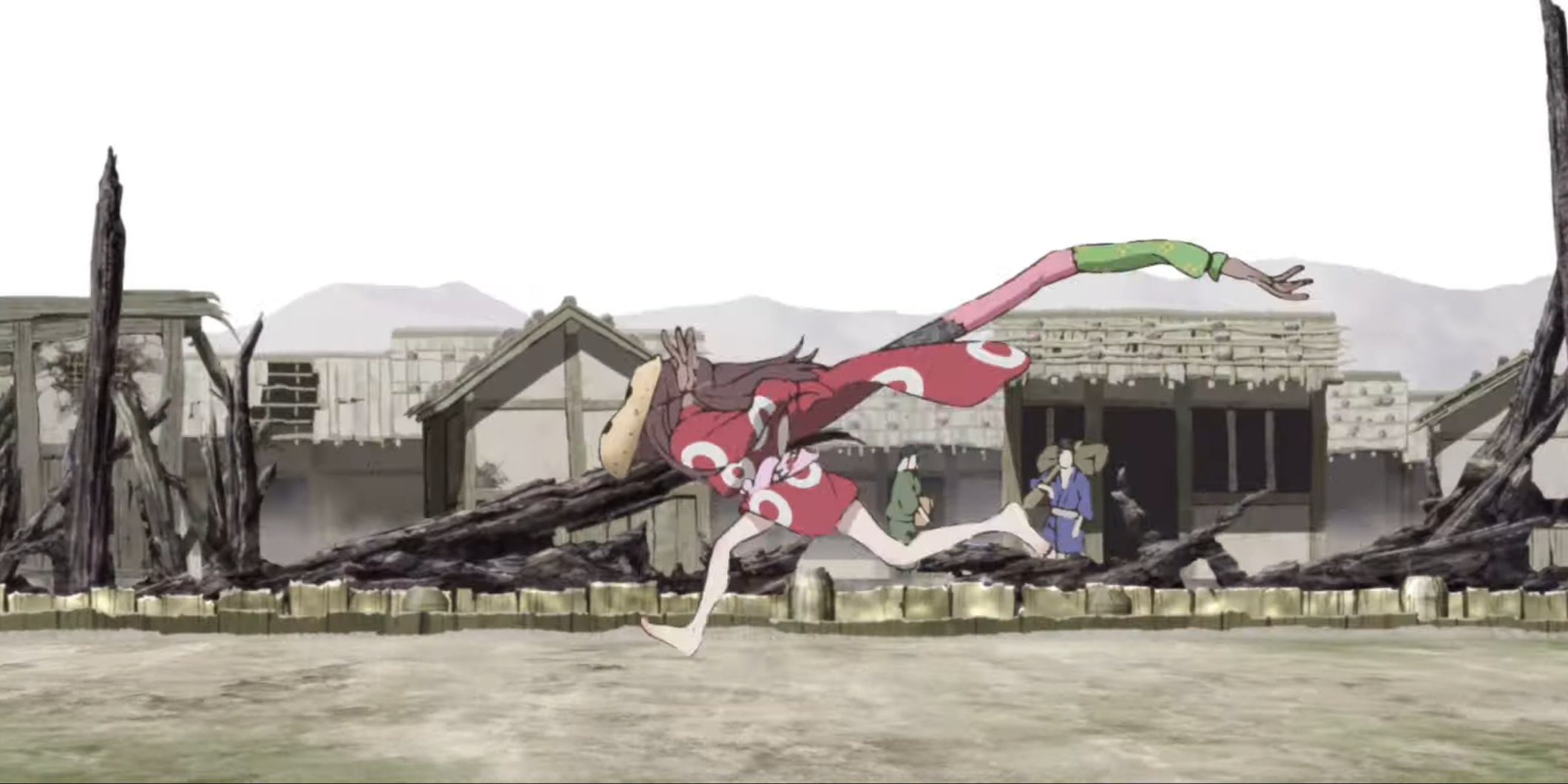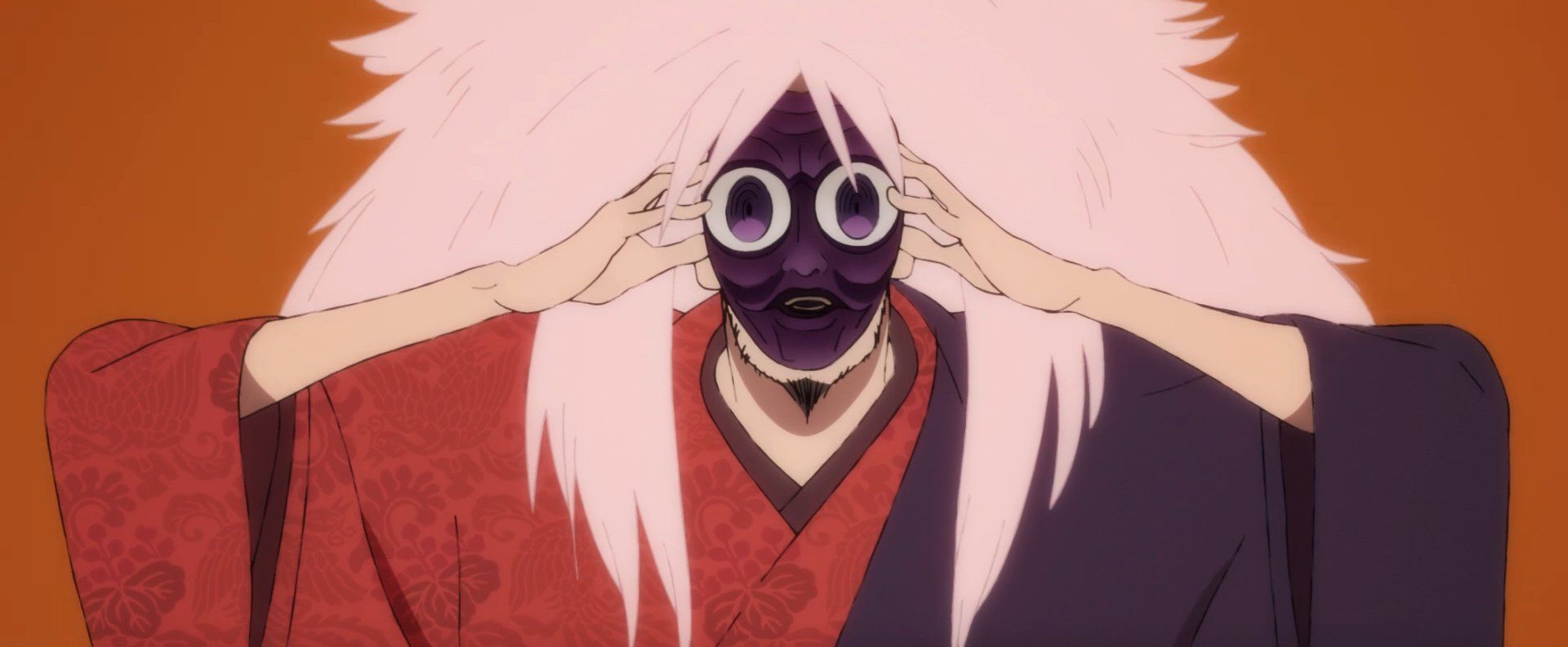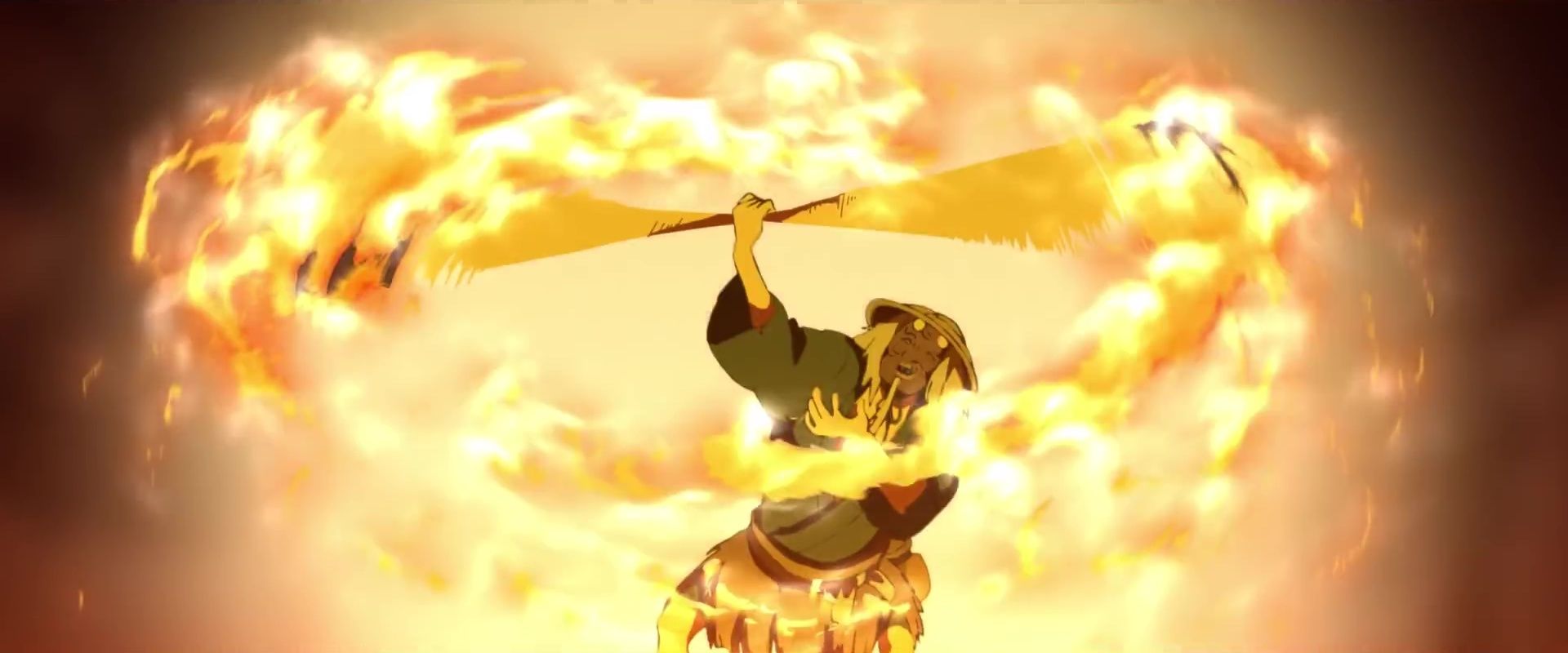If Inu-Oh is truly the final anime directed by Masaaki Yuasa, it's one hell of a note to go out on. Arguably the hardest-working auteur in the 21st-century anime business, Yuasa finally achieved commercial popularity with 2018's Devilman Crybaby and reached new artistic heights with 2020's Keep Your Hands Off Eizouken! so, he's earned his retirement at this point. And what sort of movie does the man behind The Tatami Galaxy and Ride Your Wave decide to go out on? A historical fiction glam-rock Noh musical about androgynous disabled guys liberating samurai ghosts. Always count on Yuasa to do things differently.
Based on the novel Tales of the Heike: INU-OH by Hideo Furukawa, Inu-Oh is arguably the weirdest anime Yuasa has made since his first feature film Mind Game. Inu-Oh and Mind Game actually have a similar structure: both movies start with sensory overload montages of scenes that will make more sense later on, then settle down just enough to establish the characters and their goals before abandoning traditional narrative structure and unleashing a parade of episodic spectacle sequences that ultimately build up to an inspiring message. They also have similar freedom of visual experimentation -- while Yuasa has tried out new animation techniques in almost all of his works, Inu-Oh features the greatest variety of styles he's worked into a single project since the founding of the Science SARU animation studio.
Non-Japanese viewers might have trouble jumping into Inu-Oh at first because it throws out so many cultural and historical concepts at once. It's set in the 14th century during the Muromachi period, when Noh was a popular art called Sarugaku ("monkey music," the same root word as Science SARU) and the shogunate was controlled by the descendants of the Minomoto victors of the Genpei War centuries earlier. The Genpei War's losers, the Heike, were seemingly wiped out, but their souls continue to haunt Japan and their magic relics set the plot in motion.
The movie gets more approachable as it develops its two leads: Tomona, a boy blinded and orphaned by a magic sword, and Inu-Oh, who was born mutated into a monstrous form for reasons that will eventually be explained. Both of these disabled protagonists find liberation in music. Tomona is taken in by a group of blind biwa priests, and the sequences where the viewer experiences his world of sound are the most gorgeous in the entire film. Inu-Oh hides behind a mask and lives with dogs, but he discovers parts of his curse can be remedied through performance -- it just so happens his oversized arm is perfect for inventing breakdancing six centuries early.
Around the half-hour mark, Inu-Oh and Tomona decide to team up, putting together grand performances to tell the stories of the Heike spirits and gradually heal Inu-Oh's body. It's here when the movie turns into a full-on rock musical, a parade of incredible concert sequences with headbanging music, wild dancing and Broadway-level special effects. The duo become an overnight sensation and immediately attract the envy of their more staid competition. Watching Inu-Oh at the Toronto International Film Festival months before its commercial release anywhere in the world, it's frustrating not to be able to immediately stream Inu-Oh's rocking tunes, which combine traditional Japanese instrumentation with the rhythms and energy of Queen.
Freddie Mercury's influence on Inu-Oh is not just in its songwriting, but in its heavy queer sensibility. Inu-Oh is voiced by Avu-chan, a transgender J-rock star with an astounding vocal range. Tomona upsets the priesthood by growing his hair long, wearing makeup and "dressing like a prostitute." Devilman Crybaby aside, Yuasa is not a director typically associated with fan service, but Inu-Oh is filled with shirtless men dancing sexily and driving mixed-gender audiences mad with lust. Inu-Oh and Tomina might not kiss on-screen like Galo and Lio in Promare, but it's easy to see their dynamic attracting a similar fanbase of shippers.
Inu-Oh's concert scenes are so fun that sheer entertainment value would have been enough of an excuse for the historical anachronism, but there's a deeper thematic purpose at play here too. Inu-Oh is ultimately a story about how history is written and censored, and the struggle to prevent its less fortunate events from being forgotten. If this is Masaaki Yuasa's final artistic statement, it ends up being a powerful one.
Inu-Oh will be released in Japan and the United States sometime in 2022.



